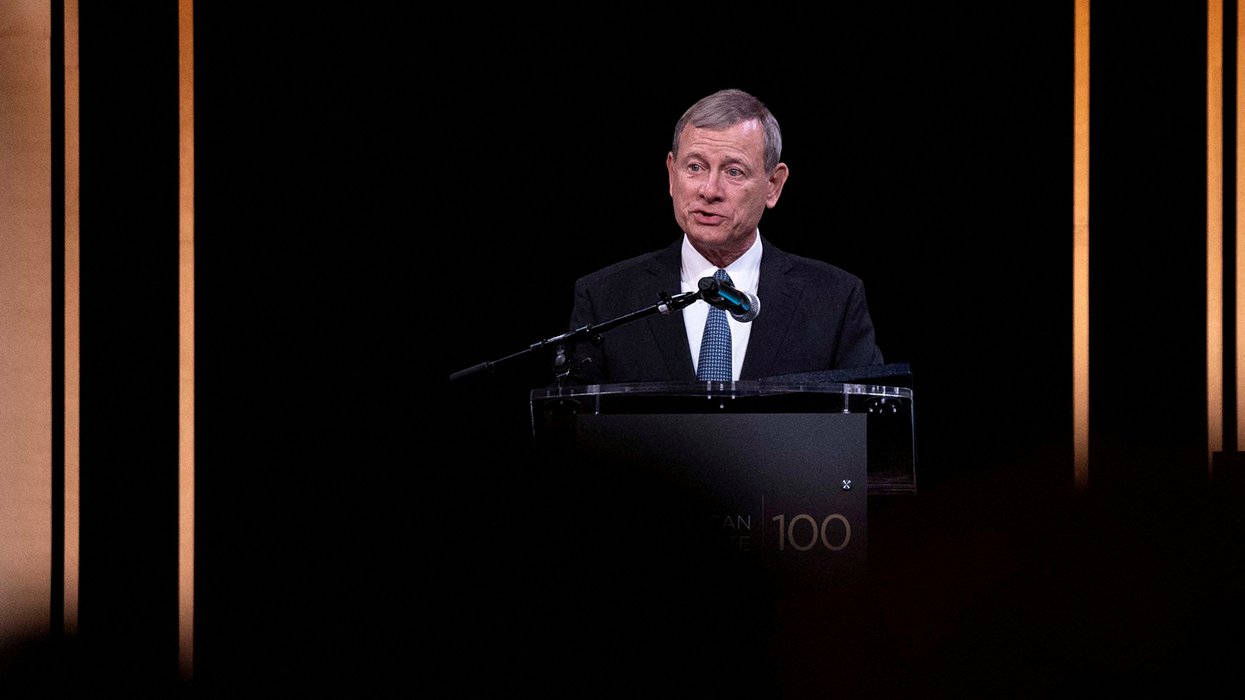Matt Ford tells the New Republic that the conservative-leaning Supreme Court has already laid waste to the brunt of U.S. efforts for campaign-finance reform and money-in-politics regulation for the past fifteen years. But now the court is set to erase one of the last remaining arguments seeking to contain the corrupting influence of millionaire money in politics.
“Republicans say it is time for [financial] coordination limits with parties to fall,” said Ford. “The GOP’s congressional fundraising arms, the NRSC and NRCC, sued the FEC along with then-Representative Steve Chabot and then-Senator J.D. Vance to overturn the limits on coordinated party expenditures.”
A wholly different U.S. Congress enacted a ban on “coordinated party expenditures,” which is election spending by political parties that is coordinated with a federal candidate. But now National Republican Senatorial Committee v. Federal Election Commission is asking the Roberts court to consider whether the ban violates the First Amendment by essentially reining in wealthy contributors’ “free speech” of drowning preferred candidates with money.
“A victory for the NRSC would allow wealthy Americans to exceed donation limits by funneling the money through a political party instead, blowing yet another hole in federal campaign-finance restrictions,” said Ford.
In its brief for the justices, the NRSC argued that the court’s 2001 opinion restricting spending collaboration between wealthy donors and politicians “was egregiously wrong the day it was decided,” and described the ruling as "a loaded weapon ready for the hand of any authority” to "limit political speech in the future.”
Federal campaign-finance law largely prohibits political parties from coordinating their campaign advertising expenditures with candidates and campaigns or giving the money to a third-party go-between to perform the coordination.
In the 2001 the Supreme Court ruled “there is good reason to expect that a party’s right of unlimited coordinated spending would attract increased contributions to parties to finance exactly that kind of spending,” Justice David Souter wrote for the 5-4 majority. “Coordinated expenditures of money donated to a party are tailor-made to undermine contribution limits.”
The Roberts court has since loosened restrictions on money in politics, with the conservative majority striking down limits on independent expenditures by corporations and unions in the 2010 Citizens United v. FEC ruling. This fueled the rise of super PACs that make unlimited expenditures as long as they don’t coordinate their money with campaign expenditures. But now Republicans say it is time to end the coordination restrictions and let the Jeff Bezos and Elon Musk tax brackets work directly with campaigns on how to spend their contributions.
“Once the court’s conservative majority has taken up a case … it has invariably ruled in favor of the side that wants to weaken anti-corruption reforms,” said Ford, adding that pro-corruption rulings “are one of the hallmarks of the Roberts Court.”
Since its 2016 ruling in McDonnell v. United States, which narrowed the federal bribery statute, the conservative majority has consistently ruled in favor of public-corruption defendants.
“One cannot really expect the Supreme Court’s conservative majority to reverse course on an ideological project to which they seem so fervently committed,” said Ford.
Oral arguments will likely be scheduled for December or early spring.
Read the New Republic report at this link.


